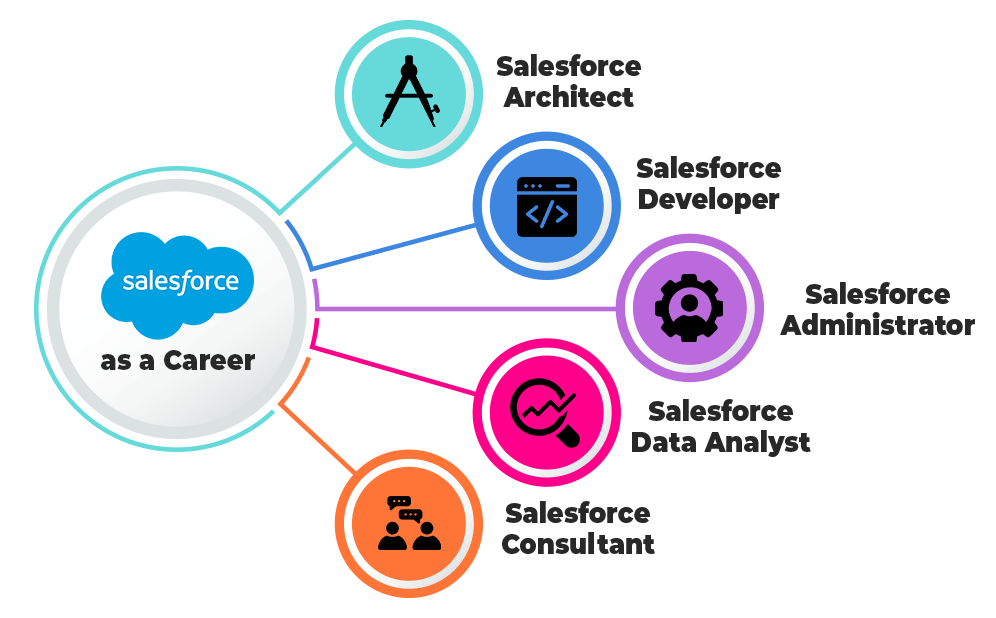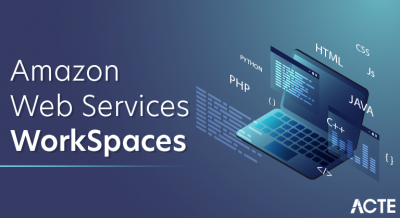
- Introduction
- What is a Salesforce Administrator
- Key Responsibilities of a Salesforce Administrator
- Skills Required to Become a Salesforce Administrator
- Steps to Becoming a Salesforce Administrator
- Career Prospects for Salesforce Administrators
- Conclusion
Excited to Obtaining Your Salesforce Certificate? View The Salesforce Training Offered By ACTE Right Now!
Introduction
In today’s rapidly evolving business environment, cloud-based tools are vital for streamlining processes, improving collaboration, and driving productivity. Among these tools, Salesforce stands out as one of the most widely used customer relationship management (CRM) platforms globally. It helps organizations track customer interactions, manage leads, automate tasks, enhance Salesforce Training, and drive sales growth. To ensure its efficient usage, Salesforce relies on skilled professionals who configure, manage, and customize its features to align with business needs. These professionals are known as Salesforce Administrators. This article delves into what a Salesforce Administrator does, the skills and qualifications needed to become one, and the career opportunities available for those pursuing this role.
Key Responsibilities of a Salesforce Administrator
- System Configuration and Customization Salesforce Administrators configure Salesforce to match the business processes and needs of the organization. This includes setting up custom fields, modifying page layouts, creating custom objects, and developing workflows. Administrators customize the user interface, dashboards, and reports, ensuring that the system aligns with the specific requirements of the business.
- User Management Salesforce Admins are responsible for user creation and maintenance, including assigning roles, profiles, and permissions. They ensure that users have the necessary access to Salesforce based on their role within the organization. Admins also monitor user activity and manage login access and security.
- Data Management and Integrity Data is the backbone of Salesforce Training, and maintaining its accuracy is crucial. Salesforce Admins are responsible for data migration, data cleansing, and data imports. They ensure that the data is up-to-date, accurate, and consistent across the platform. Admins also handle tasks such as deduplication and creating validation rules to avoid errors in data entry.
- Automation and Process Improvement A significant part of the Salesforce Admin’s role is automating repetitive tasks to increase efficiency. This includes creating workflows, process builder flows, and approval processes. By automating these processes, admins free up time for employees to focus on more strategic tasks. Additionally, they help identify and implement process improvements that can streamline business operations.
- Training and Support Salesforce Admins act as the primary point of contact for users who need help with Salesforce. They provide training for new users, help troubleshoot issues, and create user guides and documentation. Admins also conduct regular training sessions to ensure users are familiar with new features and updates in Salesforce.
- Security and Compliance Include Salesforce Admin in They are responsible for setting up user profiles, roles, and permissions to control access to sensitive data. Admins ensure that security best practices are followed and assist with compliance efforts, ensuring that the organization meets legal and regulatory requirements.
- Reporting and Analytics Salesforce Admins play a crucial role in generating reports and dashboards that provide actionable insights into business performance. They help the organization track key performance indicators (KPIs), sales activities, and customer interactions. Admins customize reports and dashboards to provide real-time insights into sales, marketing, and customer service efforts.
- Platform Maintenance and Updates Salesforce frequently releases updates, new features, and security patches. It is the responsibility of the Administrator to stay informed about these updates and assess their impact on the organization. Admins are also tasked with testing and deploying new features and functionalities, ensuring smooth transitions with minimal disruptions to business operations.
Excited to Obtaining Your Salesforce Certificate? View The Salesforce Training Offered By ACTE Right Now!

Skills Required to Become a Salesforce Administrator
Becoming a successful Salesforce Administrator requires a combination of technical and soft skills. While it is important to understand the platform and its functionalities, administrators must also possess interpersonal and problem-solving skills to effectively support users and manage the platform. A deep understanding of Salesforce’s features and functionalities is essential. Salesforce Admins need to know how to configure and customize the platform, work with reports, and dashboards, and create automation solutions like workflows and process builders. Admins need to be proficient in handling data, including importing, exporting, cleaning, and maintaining data integrity within Salesforce. Familiarity with Salesforce tools like Salesforce Lightning, Apex (Salesforce’s programming language), Visualforce (for creating custom user interfaces), and Salesforce Soql (Salesforce Object Query Language) can be beneficial. Admins must be knowledgeable about security features in Salesforce, such as user profiles, roles, permissions, and the sharing model. They must also stay updated on best practices for securing data and complying with legal requirements. Since Salesforce Administrators deal with a variety of technical issues, having strong problem-solving skills is crucial.
Thinking About Earning a Master’s Degree in Salesforce? Enroll For Salesforce Masters Program by Microsoft Today!
They must diagnose issues with the platform, troubleshoot problems, and resolve them efficiently while minimizing disruptions to business operations. As Salesforce involves managing a significant amount of data and system configurations, administrators must pay attention to detail. A minor configuration error can cause major problems, and ensuring data integrity is critical to the success of the platform. A key part of an admin’s job is interacting with different teams and end-users. Strong communication skills are required to explain complex processes clearly, document procedures, and provide training. Being able to understand user requirements and translate them into system configurations is also important. Salesforce Administrators often juggle several tasks, such as resolving issues, configuring the platform, conducting KPI Analysis and Techniques , and training users. Strong time management and organizational skills help them prioritize tasks and ensure that everything is handled promptly.

Steps to Becoming a Salesforce Administrator
Becoming a Salesforce Administrator can be an exciting career path for individuals who have an interest in technology and business processes. Below are the essential steps to embark on this career:
Understand the Salesforce Ecosystem
Before pursuing certification or hands-on training, it’s essential to familiarize yourself with Salesforce and its capabilities. You can start by exploring the Salesforce website, learning about its various products and features, and understanding how businesses use Salesforce to improve their operations.
Before pursuing certification or hands-on training it’s essential to familiarize yourself with Salesforce and its capabilities. You can start by exploring the Salesforce website, learning about its various products and features, and understanding how businesses use Salesforce to improve their operations.
Preparing for Your Salesforce Interview? Check Out Our Blog on Salesforce Interview Questions & Answer
Career Prospects for Salesforce Administrators
The demand for Salesforce Career Opportunities is high, with companies of all sizes adopting Salesforce to enhance their CRM processes. According to recent reports, Salesforce-related jobs have grown significantly in the past few years, and this trend is expected to continue. As organizations seek to fully leverage Salesforce to drive business growth, the need for skilled Salesforce Administrators is expected to increase. Salesforce Administrators can find job opportunities across a wide range of industries, including technology, finance, healthcare, manufacturing, and retail. Common job titles for Salesforce Administrators include Salesforce Administrator, Salesforce CRM Administrator, Data Management, Salesforce Configuration Specialist, and Salesforce Business Analyst with Salesforce Certification Process.
According to various salary reports, the average salary for a Salesforce Administrator in the United States is around $75,000 to $95,000 annually, depending on experience, location, and the complexity of the organization’s Salesforce implementation. Senior-level Salesforce Administrators can earn upwards of $120,000 per year. Furthermore, the growing use of Salesforce in various industries, coupled with the increasing reliance on data-driven decisions, means that the Salesforce Certification Process is well-positioned for long-term career stability and growth. Additionally, many companies offer attractive benefits packages, including opportunities for certification and further professional development. With the continuous updates and advancements in Salesforce Career Opportunities, administrators who keep their skills sharp will find ample opportunities to advance in their careers.
Conclusion
The role of a Salesforce Administrator is pivotal in ensuring that organizations can maximize the value of their Salesforce platform. By configuring and managing the system, ensuring data integrity, automating tasks, and supporting users, Salesforce Admins play a key role in helping businesses streamline operations, improve customer relationships, and drive success. For those interested in pursuing a career as a Salesforce Administrator, it requires a combination of technical skills, business acumen, Salesforce Training, and a commitment to continuous learning. By earning certifications, gaining hands-on experience, and staying engaged with the Salesforce community, you can build a successful and rewarding career in this dynamic field. Additionally, Salesforce Admins must stay adaptable as the platform evolves with new features and functionality. The ability to troubleshoot, analyze business needs, and customize solutions will be invaluable in delivering exceptional results. With a growing demand for Salesforce expertise across industries, the career path for administrators offers significant opportunities for advancement and professional growth.


